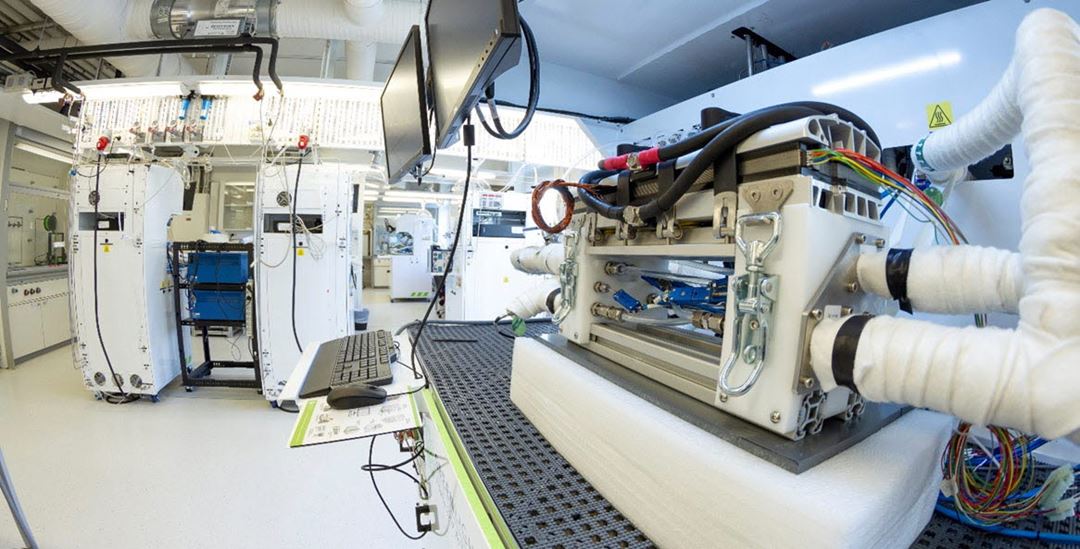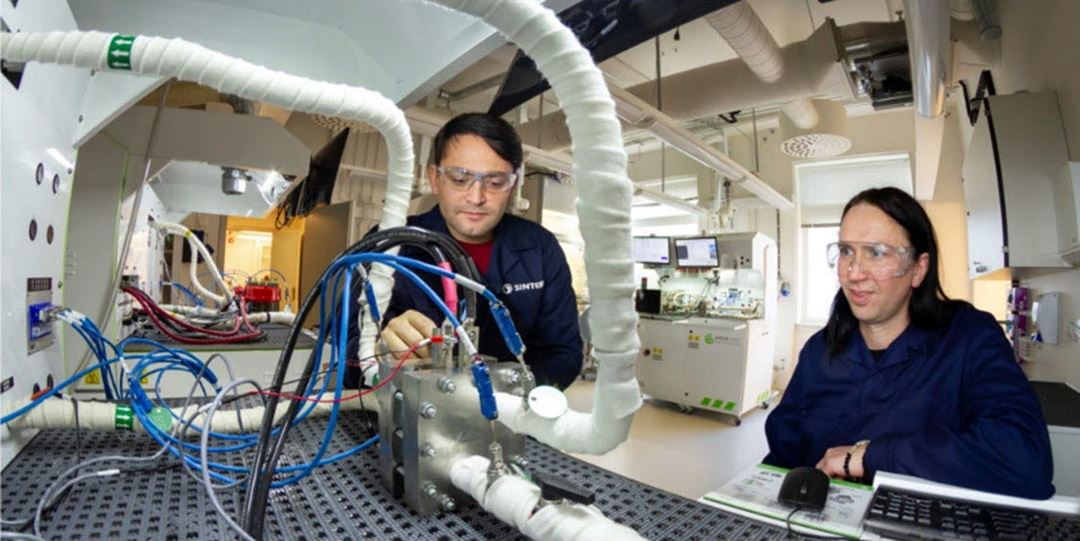The laboratory is operated by the New Energy solution group in SINTEF Industri, shared with NTNU, and is one of the nodes of the Norwegian Fuel cell and Hydrogen Centre. The node is outfitted with state-of-the-art test stations, whose highly customizable nature provides characterization and analysis of various phenomena occurring under real-world operating conditions.
From validation of novel materials, components, and cell designs to lifetime/degradation studies on mature technologies under industrially relevant conditions, the insights gained at the laboratory have proven to be invaluable to the recent progress in low temperature fuel cell and electrolyser technologies, both nationally and internationally.

In addition, the laboratory is also equipped with ancillary equipment to perform advanced electrochemical characterization of these devices, e.g., CV, LSV, EIS, and in-situ ICR. The lab and its highly qualified researchers also focus on advanced on-line measurement methodologies, coupling performance and degradation behavior to gas/water quality using analytical equipment such as gas chromatography, FTIR, and ion chromatography.

Test stations
- RDE and RRDE set up
- G20 Direct methanol/ethanol fuel cell single cell (max 30 A)
- G60 PEM and AEM fuel cell single cell (max 125 A)
- G400 PEM and AEM fuel cell stacks (max 800 A, 80 V)
- E40 PEM electrolyser single cell (max 100 A)
- E100 PEM electrolyser stacks (max 500 A, 20 V)
- E40 high pressure alkaline electrolyser single cell/short stack (max 100 A, 8V)


